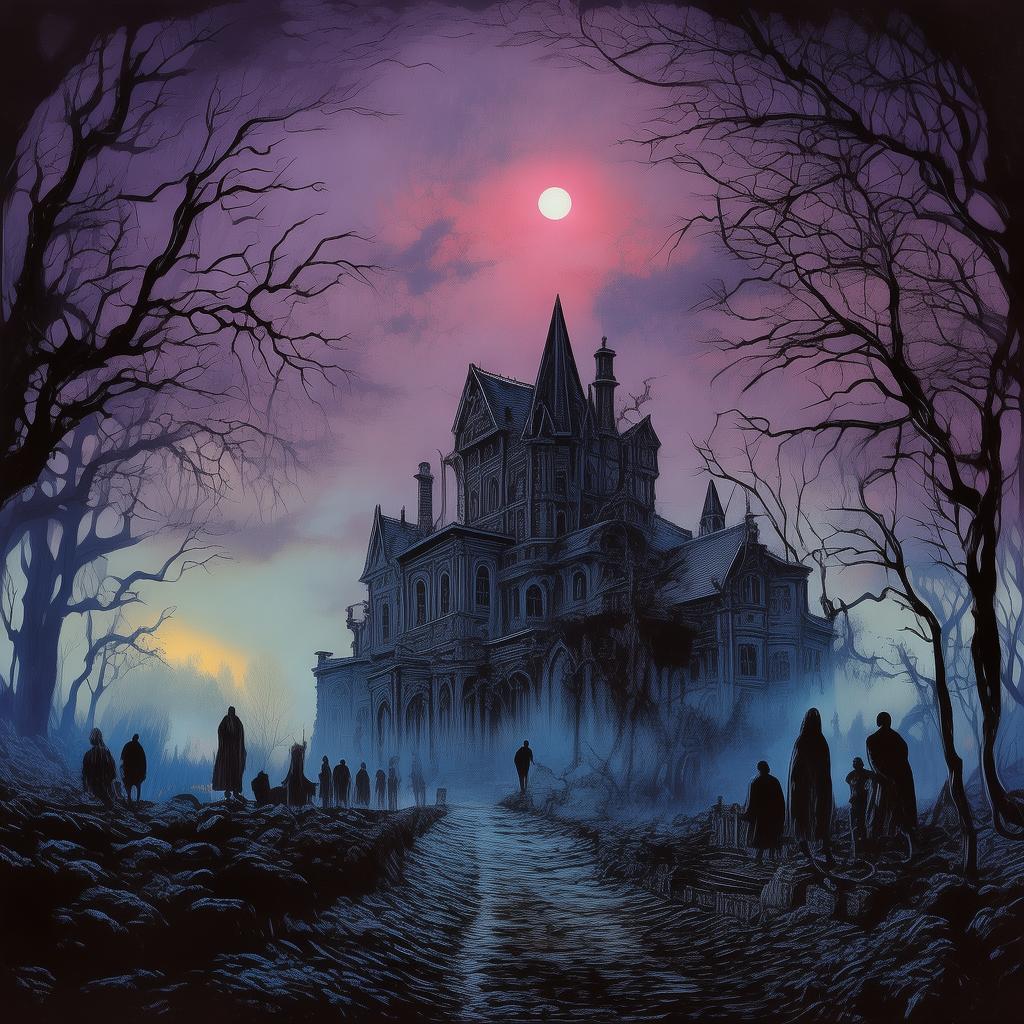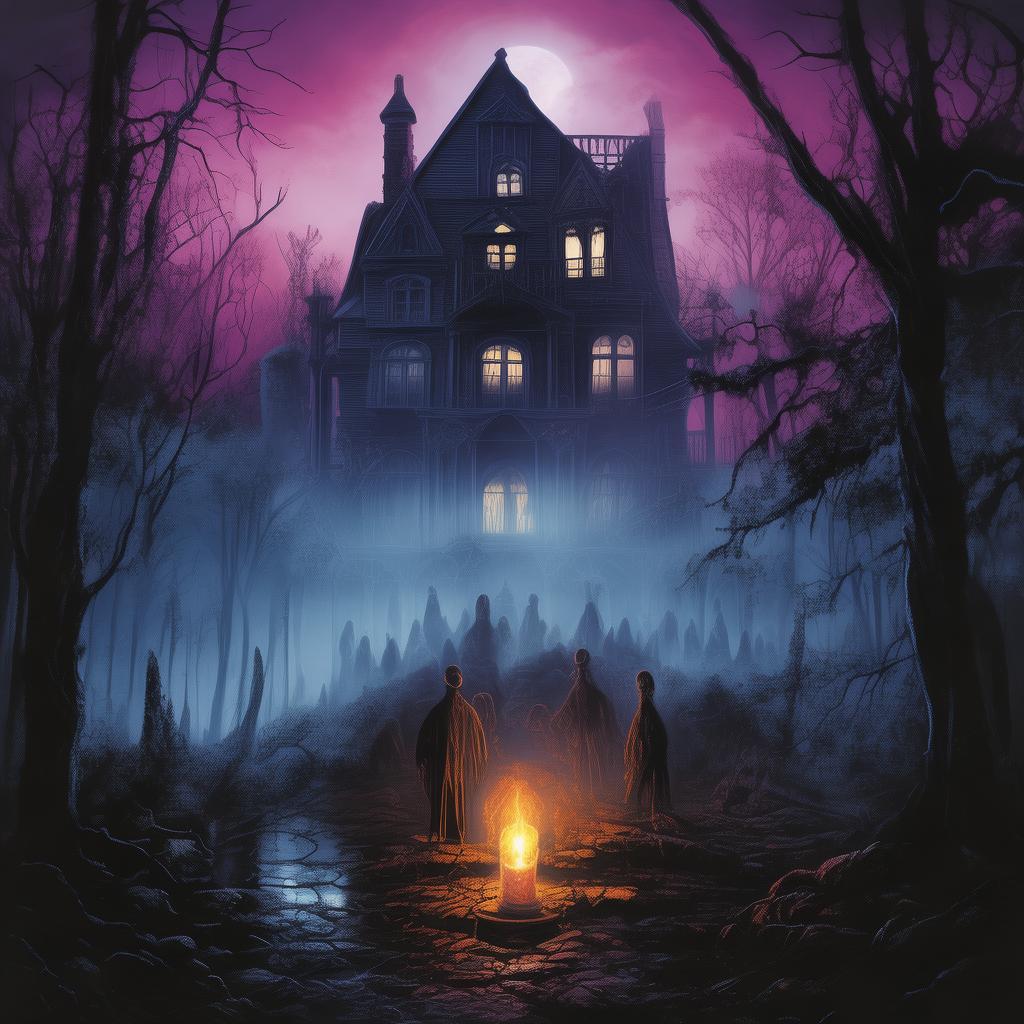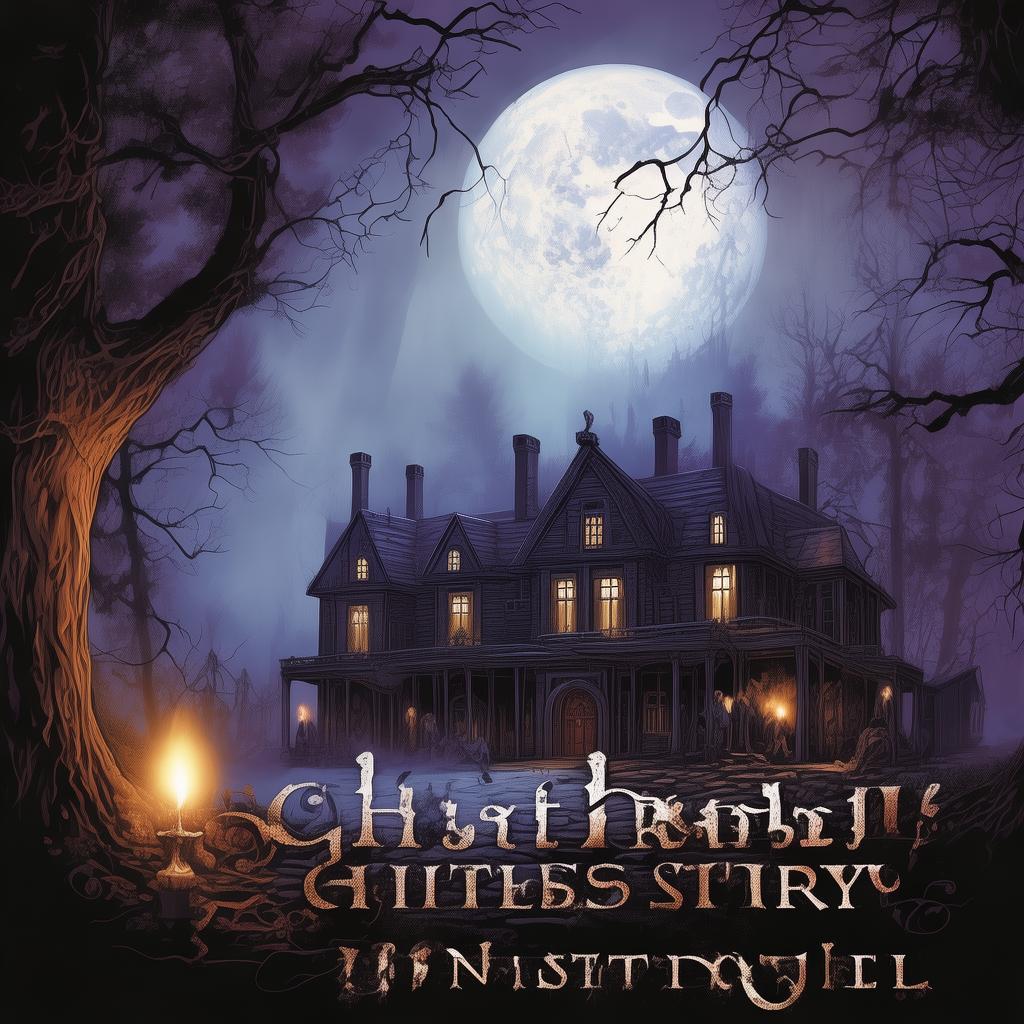The Haunting Giggle: A Tale of the Living Ghost
The old theater stood at the edge of town, its once vibrant facade now faded and peeling. The marquee, long since silent, whispered tales of yesteryears through its rusted letters. It was here, in the heart of the town's forgotten history, that the giggling ghost had taken up residence.
Eliza had always been drawn to the supernatural. Her mother, a former actress, had regaled her with stories of the theater's past, tales of laughter and tragedy that seemed to echo through the walls. Now, as a young actress herself, Eliza felt a magnetic pull towards the old building, a pull that she couldn't resist.
One crisp autumn evening, Eliza found herself standing before the theater's creaking doors. She pushed them open, the hinges groaning in protest, and stepped inside. The air was thick with dust and the scent of old wood, but it was the sound of laughter that truly startled her. It was a sound that seemed to come from everywhere and nowhere at once, a haunting giggle that sent shivers down her spine.
"Who's there?" Eliza called out, her voice echoing through the empty halls. The giggle intensified, a chilling melody that seemed to dance on the edge of sanity. She followed the sound, her footsteps echoing softly on the wooden floor, until she reached the theater's dressing room.
The room was dark, save for the flickering light of a single candle. Eliza's eyes adjusted to the dimness, and she saw a figure sitting in the corner, hunched over and rocking back and forth. The figure looked up, and Eliza's heart skipped a beat. The woman's eyes were wide and wild, and her laughter was a sound that cut through the silence like a knife.
"Who are you?" Eliza demanded, her voice steady despite the fear that was gripping her.

The woman's laughter stopped abruptly, replaced by a voice that was both familiar and strange. "I am the ghost of the theater, Eliza. I have been waiting for you."
Eliza stepped closer, her curiosity outweighing her fear. "Why me?"
The ghost's eyes softened. "Because you have the gift to see the truth, Eliza. You have the gift to bring me peace."
Eliza's mind raced. She knew the legend of the theater's tragic past, a story of love and betrayal that had ended in heartbreak and death. But she had never known the full extent of the tragedy.
As the ghost began to speak, Eliza listened intently, her heart aching for the woman who had once been so vibrant and full of life. The story was one of passion and despair, of a love that had been torn apart by jealousy and greed. The ghost had been a young actress, once the toast of the town, whose laughter had been the sound of joy and freedom. But her laughter had turned to a haunting giggle, a sound that had followed her into the afterlife.
Eliza realized that the ghost's giggle was not one of malice, but of sorrow and longing. She had been trapped in the theater, her laughter a ghostly echo of her former life. And now, Eliza was the key to her freedom.
"I can help you," Eliza said, her voice filled with determination. "But I need to know everything. I need to know the truth."
The ghost nodded, her eyes glistening with unshed tears. "I will tell you, Eliza. But you must promise me one thing. You must tell the world the truth of what happened here."
Eliza agreed, and the ghost began to speak. She told of the love affair that had blossomed between her and a young playwright, of the jealousy that had driven his wife to madness, and of the tragic end that had left her spirit trapped in the theater.
As the story unfolded, Eliza felt a growing sense of responsibility. She knew that she had to bring the truth to light, to give the ghost the peace she so desperately craved.
The climax of the story came when Eliza discovered that the playwright's wife had not only driven her to her death but had also taken her place on stage, her laughter a mask for the pain and guilt she felt. The ghost had been unable to escape the theater because she had been too afraid to confront the truth of her own death.
With the help of the ghost, Eliza pieced together the evidence and confronted the remaining members of the playwright's family. The truth was finally revealed, and the playwright's wife was held accountable for her actions.
The ghost's giggle, once a sound of sorrow, now turned into a sound of relief. She had been freed from the theater, her spirit able to move on to the afterlife.
Eliza left the theater, the weight of the story heavy on her shoulders. She knew that she had to tell the world the truth, to give the ghost the closure she needed.
The story of the haunted theater spread quickly through the town, and Eliza became a local hero. She had not only freed the ghost but had also brought peace to the town.
The old theater, once a place of laughter and joy, had become a place of sorrow and tragedy. But now, it was a place of healing and closure. The ghost had found peace, and Eliza had found her purpose.
The giggle of the ghost had been the sound of her final goodbye, a haunting melody that had brought Eliza to the truth. And in the end, it was the power of truth and love that had freed the spirit of the theater, allowing it to live on in the hearts of those who had heard her story.
The Haunting Giggle: A Tale of the Living Ghost was not just a story of a ghost and a young actress; it was a tale of truth, love, and the power of redemption. It was a story that would resonate with readers, sparking discussions and reflections on the nature of life, death, and the afterlife.
✨ Original Statement ✨
All articles published on this website (including but not limited to text, images, videos, and other content) are original or authorized for reposting and are protected by relevant laws. Without the explicit written permission of this website, no individual or organization may copy, modify, repost, or use the content for commercial purposes.
If you need to quote or cooperate, please contact this site for authorization. We reserve the right to pursue legal responsibility for any unauthorized use.
Hereby declared.









